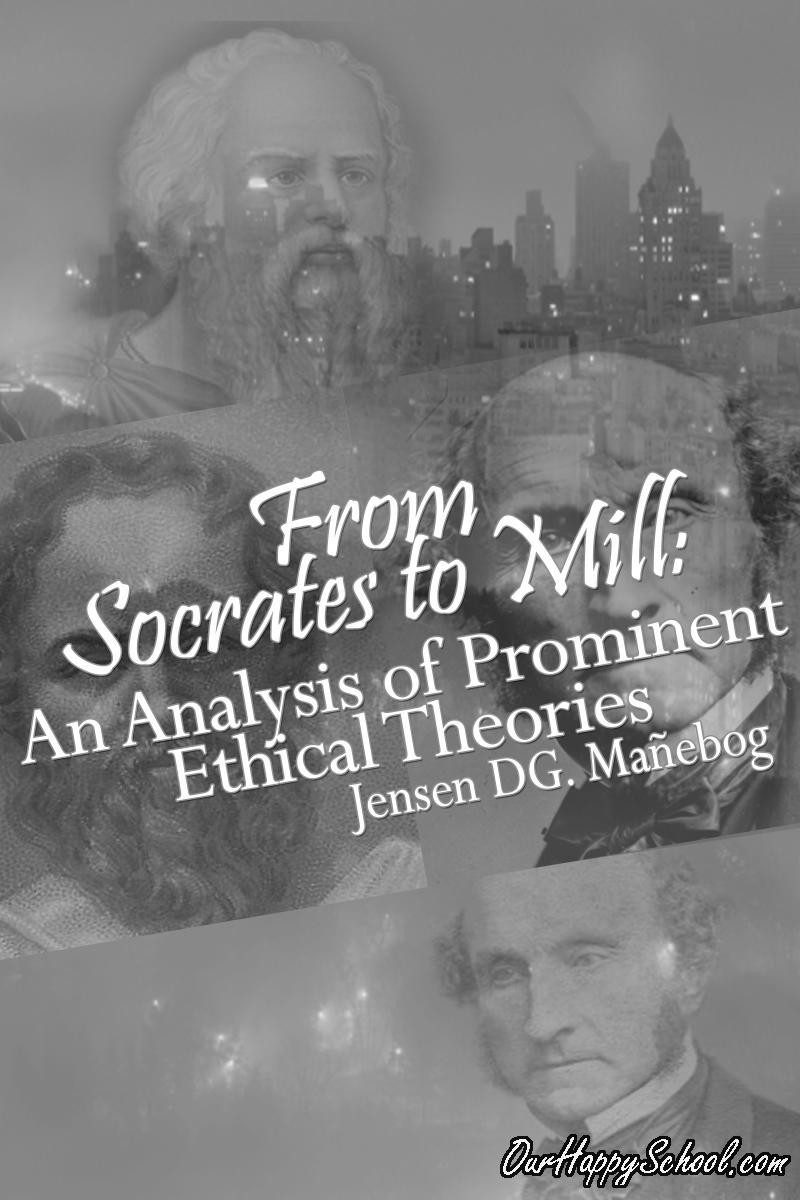Sponsored Links
The Theistic Ethics and the cut-flower thesis

© 2010 by Jensen DG. Mañebog
THEISTIC ETHICS BELIEVES THAT A SUPERNATURAL BEING called God is the foundation of morality. Its proponents hold that unlike secularists’ ethical theories, this ethical system can satisfactorily explain the existence of objective moral values and the moral law.
Can justify moral values
While other ethical views can just postulate good moral principles, only a theistic view can justify them. At least four reasons are given for this:
(1) Unless ethics is rooted in the unchangeable nature of a morally perfect being (God), there is no basis for believing in moral absolutes. Only an absolute Moral Law-Giver is a sufficient ground for absolute moral laws;
(2) And, if everything is relative, then there is no good reason why anyone ought to refrain from doing anything he or she wants to do, including rape, murder, and genocide. Of course, as humanist Paul Kurtz holds, those who deny moral absolutes can believe in general moral principles, many of which are noble (“Forbidden Fruit: The Ethics of Humanism,” a Christian Research Journal [Fall 1988), pp. 27-29]). What they cannot do nevertheless is to justify this belief, since according to their system, there is no real ground for such a belief.
(3) Only in theism are all persons held morally accountable for their actions in the real sense. With this theory, we can, with consistency, make moral choices which run contrary to our self-interest and even carry out acts of extreme self-sacrifice, knowing that such decisions are not just empty and meaningless gestures, rather, our moral lives have a paramount significance.
Finally, (4) only the ethics rooted in a Moral Law-Giver can be truly prescriptive in any objective sense of the word. A descriptive ethic is no ethics at all—it merely tells us what people are doing, not what they ought to do. We see people doing all kinds of evil of which even relativists do not approve. All that is required to demonstrate this is to try insulting, raping, or killing a relativist. His or her reaction will betray his or her true belief that these acts are wrong.
What is the cut-flower thesis?
Accountability
Ethical supernaturalism, compared to non-theist counterparts, is comparatively better as an ethical system in terms of “accountability”.
Theistic ethics maintains that man’s life does not end at the grave and that all persons are held morally accountable for their actions. “Evil and wrong will be banished, righteousness will be vindicated.” Good ultimately triumphs over evil, and we shall see that we do live in a moral universe after all. In the end, supernaturalism expects, the scales of God’s justice will be balanced. In effect therefore, the moral choices that people make in this life are infused with an “eternal significance”.
In supernaturalistic paradigm, we can, with consistency, make ethical decisions which actually run contrary to our self-interest and even undertake acts of extreme self-sacrifice, knowing that such choices are not just empty and meaningless gestures. In supernaturalistic worldview, our moral lives do have a paramount significance.
It is noteworthy that even non-theist Professor Taylor, in his writings, agrees that supernaturalism provides a perfectly coherent and sound basis for morality. In the book he authored, Ethics, Faith, and Reason, he writes, thus:
“The idea of moral … obligation is clear enough, provided reference to some lawmaker higher … than those of the state is understood. In other words, our moral obligations … can be understood as those imposed by God. This does give a clear sense to the claim that our moral obligations are more binding upon us than our political obligations” (Richard Taylor, “Ethics, Faith, and Reason,”Englewood Cliffs, N. J.: Prentice-Hall, 1985, pp. 83–84).
Unfortunately, Professor Taylor seems not to believe in God, and so he shuns a supernatural foundation for morality. Nevertheless, he admits that if God exists, then the foundations for morality are secure. Thus, even non-theists can agree to the reasons proving that supernaturalism provides a sound and better foundation for morality.
Accountability in Naturalism
When we turn to naturalism, we will notice that there is no real moral accountability for one’s actions—for human life just finds its end in grave. Absent in secularism is the so-called “life-after” of theism where the final reward and punishment, which make the ultimate justice possible, will be given. Even if we grant that there were objective moral values under naturalism or secularism, they would emerge to be irrelevant because there is no moral accountability. It would be like promulgating a strict state law but without real sanction or punishment for the offenders. In such a condition, there would be no essential difference between following and transgressing that strict law. Similarly, if life ends at the grave as secularism suggests, then it makes no difference whether one has lived “as a Hitler or as a saint.” As the Russian writer Dostoyevsky rightly said, “If there is no immortality, then all things are permitted” (Fyodor Dostoyevsky, “The Brothers Karamazov,” translated by. C. Garnett, New York: Signet Classics, 1957, bk. II, chap. 6; bk. V, chap. 5; bk. XI, chap. 8).
As William Lane Craig explains, given the finality of death, it really does not matter how one lives. We wonder what a secularist would say to someone who contends that we may as well just live for self-interest, live just as we please, and for pleasure. Secularists may preach that it is in our best self-interest to adopt a moral lifestyle. But as we observe, that is not always true. We know of situations in which morality runs smack in the face of self-interest. If one is sufficiently powerful, like a Hitler or a dictator, one can just ignore the dictates of conscience and live in pure self-indulgence. Acts of self-sacrifice become particularly inept in a secular-naturalistic worldview that sacrifice for another person would just be stupid.
Rebuttal
Some secularists propose that the idea of life ending at the grave still makes a difference whether you live as a saint or as a devil. It makes a difference, they claim, to what kind of a person you are. They suggest that you can say, “I want to look good as a human being,” and that is not a bad ideal, so they say.
For STUDENTS' ASSIGNMENT, use the COMMENT SECTION here: The Cut-Flower Thesis






